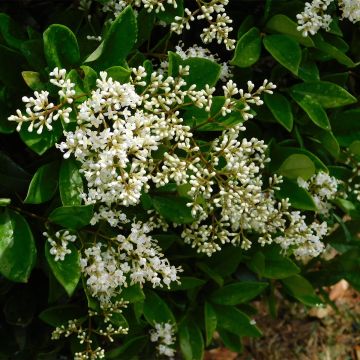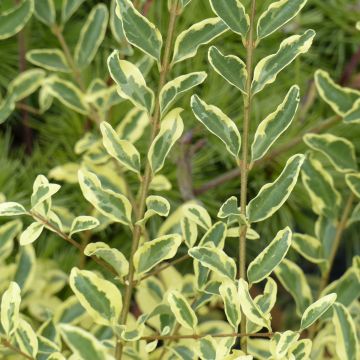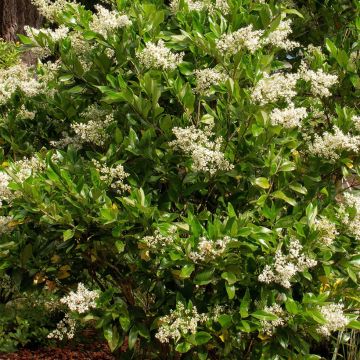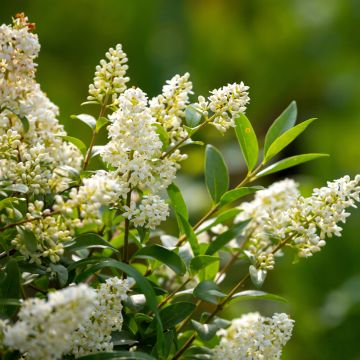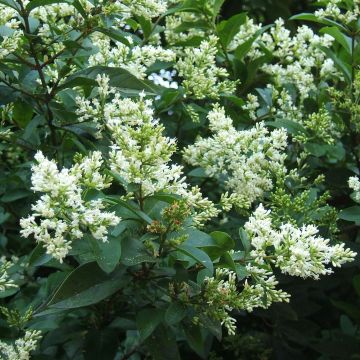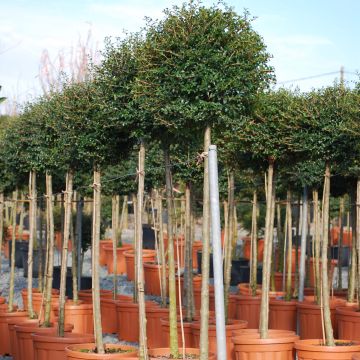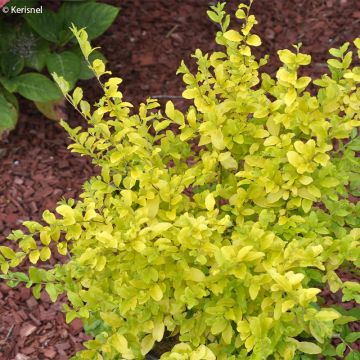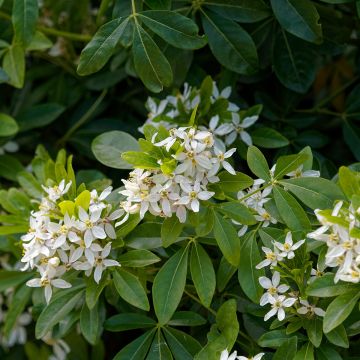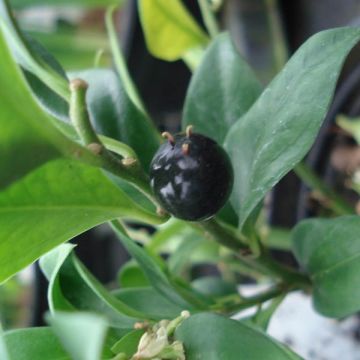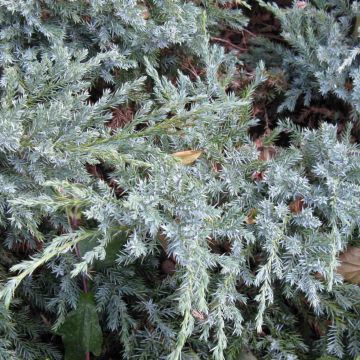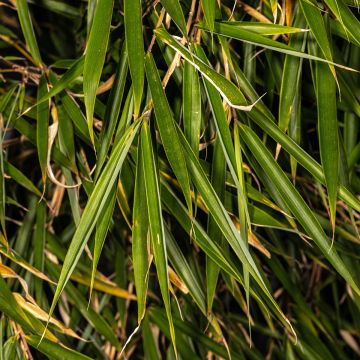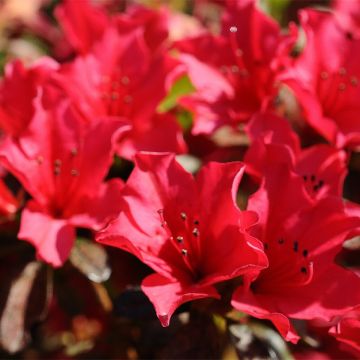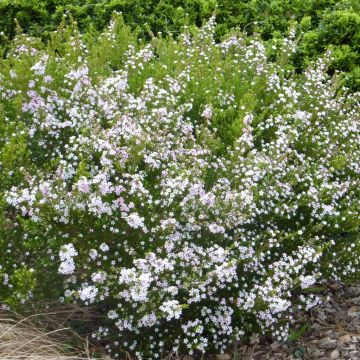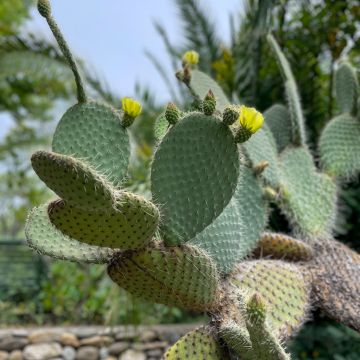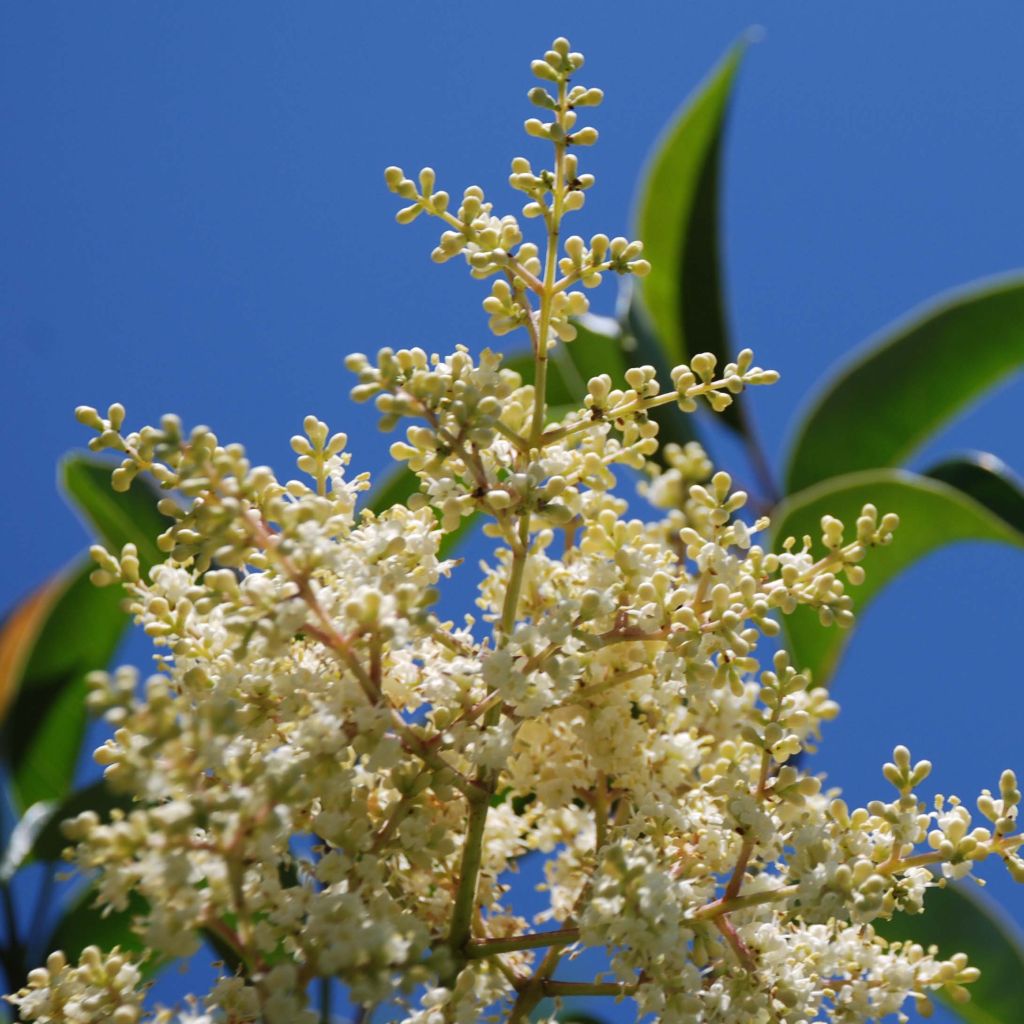

Ligustrum lucidum - Glossy Privet
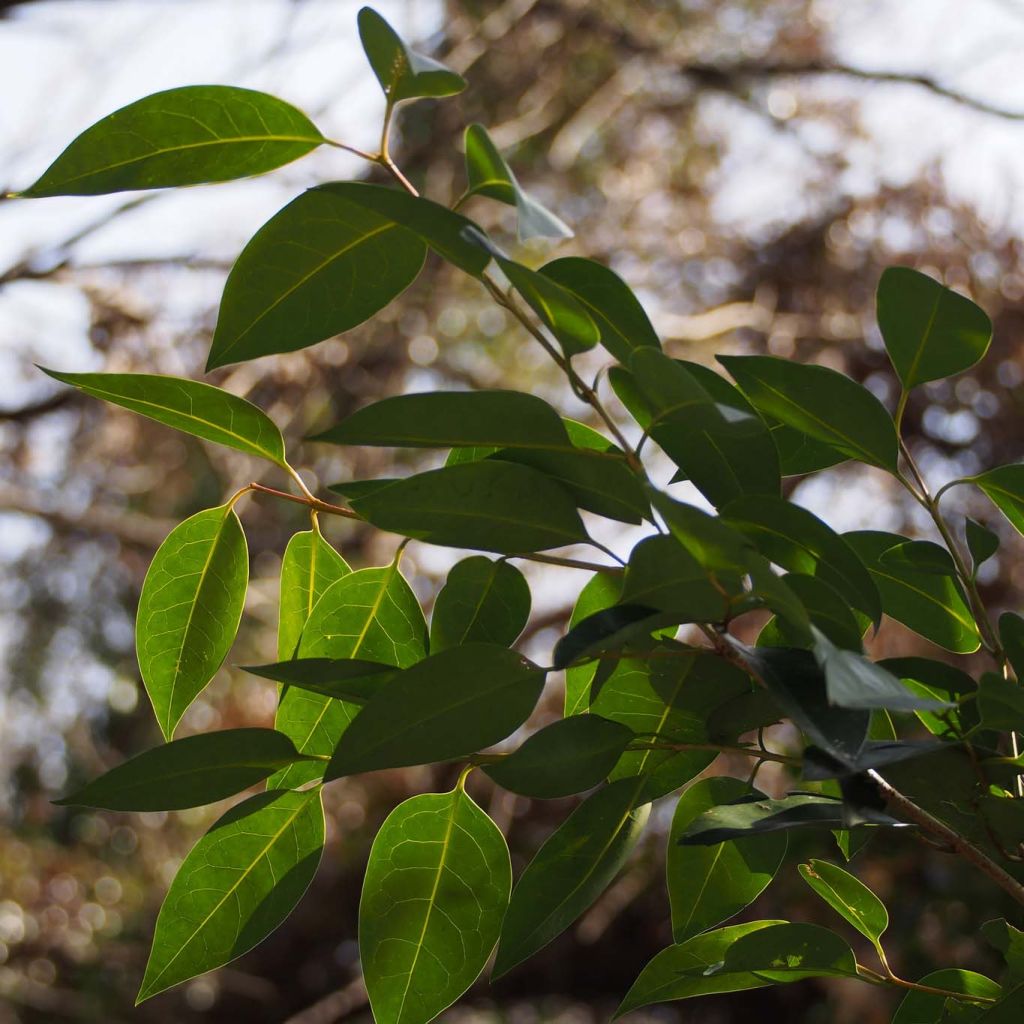

Ligustrum lucidum - Glossy Privet
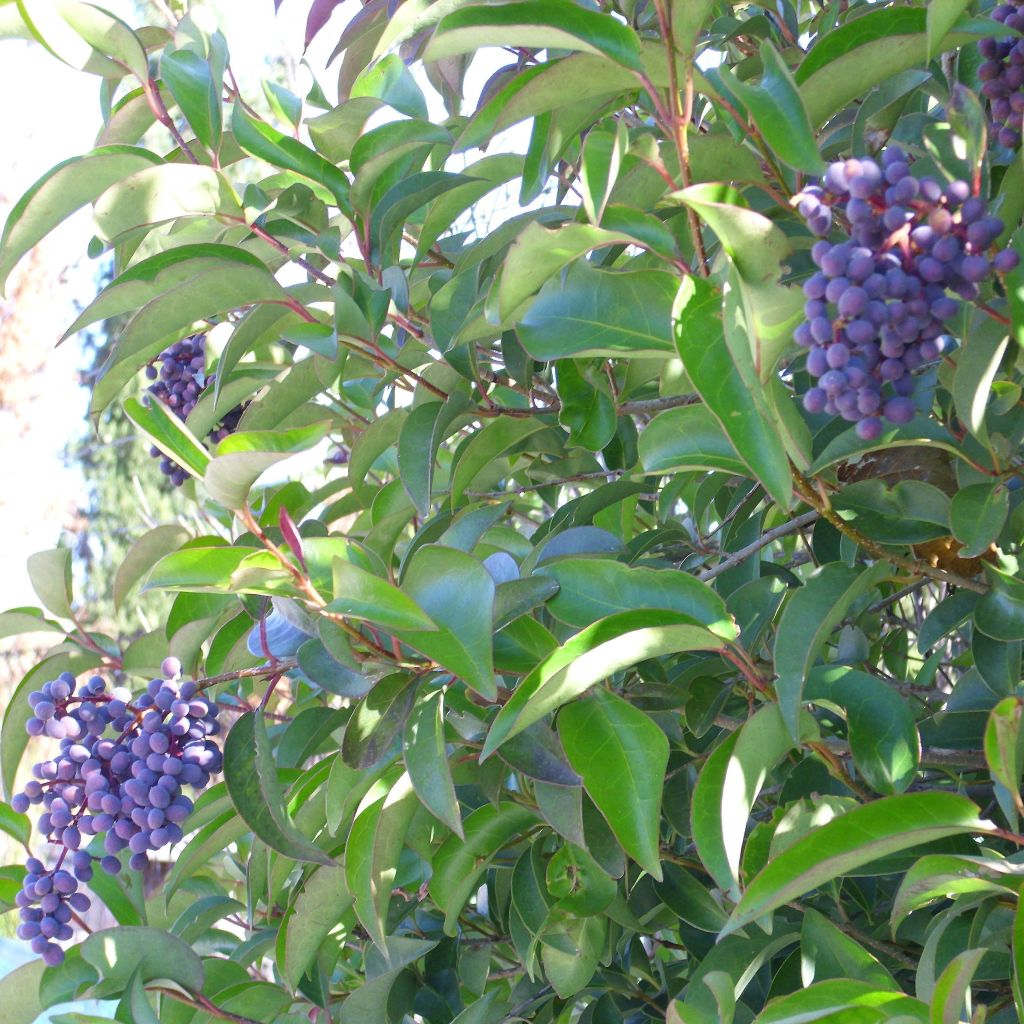

Ligustrum lucidum - Glossy Privet
Ligustrum lucidum - Glossy Privet
Ligustrum lucidum
Glossy Privet, Broad-leaf Privet, Tree Privet, Large-leaf Privet, Shiny-leaf Privet, Chinese wax Tree
I received some **young plants** of privet that were supposed to all be Ligustrum lucidum (Chinese privet), but on the labels, they are identified as Ligustrum japonicum, 2m high. I wanted **bushes** taller than 2m. I am disappointed because my order does not match my expectations, and moreover, the prices of these two varieties are not the same.
Someone, 30/10/2024
Special offer!
Receive a €20 voucher for any order over €90 (excluding delivery costs, credit notes, and plastic-free options)!
1- Add your favorite plants to your cart.
2- Once you have reached €90, confirm your order (you can even choose the delivery date!).
3- As soon as your order is shipped, you will receive an email containing your voucher code, valid for 3 months (90 days).
Your voucher is unique and can only be used once, for any order with a minimum value of €20, excluding delivery costs.
Can be combined with other current offers, non-divisible and non-refundable.
Home or relay delivery (depending on size and destination)
Schedule delivery date,
and select date in basket
This plant carries a 24 months recovery warranty
More information
We guarantee the quality of our plants for a full growing cycle, and will replace at our expense any plant that fails to recover under normal climatic and planting conditions.

Would this plant suit my garden?
Set up your Plantfit profile →
Description
Ligustrum lucidum, often mistakenly called Japanese Privet, is actually known as Chinese Privet or Glossy Privet, due to its large, highly glossy leaves. This tall botanical species with late but generous and pleasantly scented flowering, is among the most ornamental of its genus. This large evergreen shrub or small tree with a conical habit is often used as a hedge in mild regions, as its hardiness can be lacking in colder climates. A magnificent ornamental subject for the garden, pleasing in all seasons and extremely adaptable to growing conditions.
Originally mainly from China, but also found in Japan and Korea, Ligustrum lucidum is a small evergreen tree of the Oleaceae family, just like lilacs and forsythia. Its habit is generally conical, composed of a short trunk with brown and grey bark that can reach a width of 10cm (4in), and a dense and ramified crown. The fairly fast-growing plant can reach up to 25m (82ft) in height in certain conditions, especially in warm and humid climates. In our gardens, it generally reaches a height of 7m (23ft) and a crown width of 5m (16ft). The branches bear persistent, tough, opposite, entire, ovate and pointed leaves, measuring up to 15cm (6in) long and 8cm (3in) wide. The leaves are thick and very glossy on the upper side. There is a subspecies, latifolium, which loses its leaves in winter. Each leaf appears folded in half along the very pronounced midrib. In late summer or early autumn, in September-October depending on the region, 8 to 20cm (3 to 8in) long panicles composed of small white-pink to white-cream flowers bloom on the current year's shoots. Their pleasant fragrance attracts many pollinating insects. The flowers give way to small deep blue-black berries, provided no pruning is done after flowering. Note that all parts of the privet are toxic to humans if ingested. Moderately hardy, this Chinese privet, once established, can withstand short frosts of around -12°C (10.4°F). It adapts to a wide range of sufficiently deep soils and tolerates summer drought relatively well.
Privet hides some treasures among the approximately 50 species that make up the genus. Chinese privet deserves more than an anonymous spot in a neatly trimmed hedge, as it is an easy-to-grow small tree, valuable for bringing a precise, orderly, reassuring note to the structure of the garden, and providing lushness to neglected areas and forgotten boundaries. It will draw attention for much of the year with its fragrant flowering, its clustered fruits, and its distinctive foliage. It can be left to grow freely in a grove of shrubs, alongside the wayfaring tree, cotoneaster, firethorn, holly, oleaster, deciduous or evergreen spindle trees, brooms, Portugal laurel, and bay laurel. Be inspired!
Report an error about the product description
Ligustrum lucidum - Glossy Privet in pictures
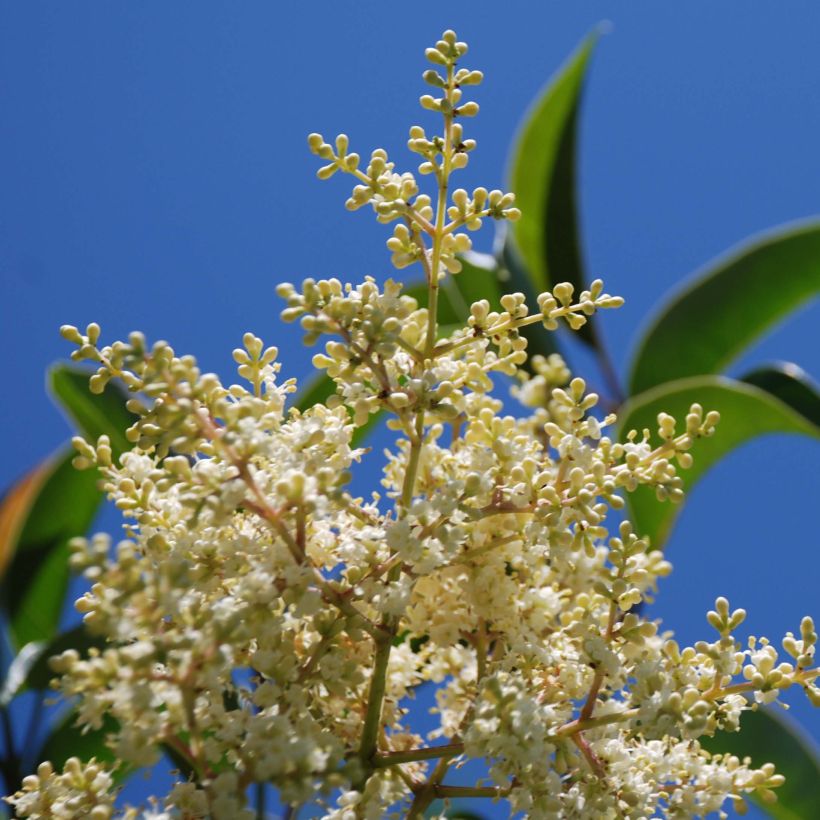

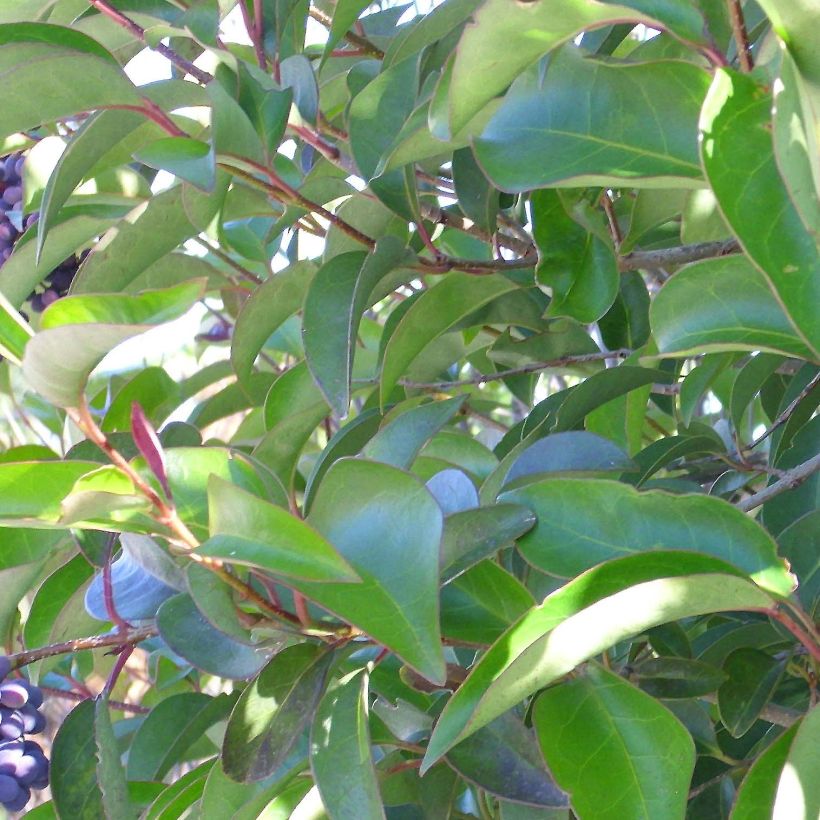

Plant habit
Flowering
Foliage
Botanical data
Ligustrum
lucidum
Oleaceae
Glossy Privet, Broad-leaf Privet, Tree Privet, Large-leaf Privet, Shiny-leaf Privet, Chinese wax Tree
Southeast Asia
Other Ligustrum - Privet
View all →Planting and care
Plant in spring in cold regions or in autumn in mild climates, with a spacing of 1.5m (5ft) to form a hedge. Choose a sunny to semi-shaded exposure, or even shady in hot and dry climates. Dig a hole over twice the size of the pot, loosen the bottom, and add a large handful of horticultural compost or mix slow-release fertiliser with loose soil. The roots of this bush can rot in winter in overly wet and poorly drained soil. Water well, especially during the first summers, mulch the soil to retain moisture, and cut back the branches by half to promote the growth of new shoots. Once established, this bush does not require watering in summer if it is planted in sufficiently deep soil that will retain some moisture. The hardiness of a mature specimen is around -12°C (10.4°F) for a short period.
Pruning is not essential in an informal hedge, as it will compromise flowering or fruiting if done at the wrong time. In a formal hedge, on the other hand, shorten the new shoots by half each year to promote branching of your plant. Do this after flowering so that the new shoots hide the unsightly leaves cut in half by the hedge trimmer. This bush can also be trained as a tree by removing the branches that appear towards the bottom of the trunk. Ligustrums are quite resistant to pests and diseases. However, they can be affected by weevil larvae or caterpillars.
Planting period
Intended location
Care
-
, onOrder confirmed
Reply from on Promesse de fleurs
Similar products
Haven't found what you were looking for?
Hardiness is the lowest winter temperature a plant can endure without suffering serious damage or even dying. However, hardiness is affected by location (a sheltered area, such as a patio), protection (winter cover) and soil type (hardiness is improved by well-drained soil).

Photo Sharing Terms & Conditions
In order to encourage gardeners to interact and share their experiences, Promesse de fleurs offers various media enabling content to be uploaded onto its Site - in particular via the ‘Photo sharing’ module.
The User agrees to refrain from:
- Posting any content that is illegal, prejudicial, insulting, racist, inciteful to hatred, revisionist, contrary to public decency, that infringes on privacy or on the privacy rights of third parties, in particular the publicity rights of persons and goods, intellectual property rights, or the right to privacy.
- Submitting content on behalf of a third party;
- Impersonate the identity of a third party and/or publish any personal information about a third party;
In general, the User undertakes to refrain from any unethical behaviour.
All Content (in particular text, comments, files, images, photos, videos, creative works, etc.), which may be subject to property or intellectual property rights, image or other private rights, shall remain the property of the User, subject to the limited rights granted by the terms of the licence granted by Promesse de fleurs as stated below. Users are at liberty to publish or not to publish such Content on the Site, notably via the ‘Photo Sharing’ facility, and accept that this Content shall be made public and freely accessible, notably on the Internet.
Users further acknowledge, undertake to have ,and guarantee that they hold all necessary rights and permissions to publish such material on the Site, in particular with regard to the legislation in force pertaining to any privacy, property, intellectual property, image, or contractual rights, or rights of any other nature. By publishing such Content on the Site, Users acknowledge accepting full liability as publishers of the Content within the meaning of the law, and grant Promesse de fleurs, free of charge, an inclusive, worldwide licence for the said Content for the entire duration of its publication, including all reproduction, representation, up/downloading, displaying, performing, transmission, and storage rights.
Users also grant permission for their name to be linked to the Content and accept that this link may not always be made available.
By engaging in posting material, Users consent to their Content becoming automatically accessible on the Internet, in particular on other sites and/or blogs and/or web pages of the Promesse de fleurs site, including in particular social pages and the Promesse de fleurs catalogue.
Users may secure the removal of entrusted content free of charge by issuing a simple request via our contact form.
The flowering period indicated on our website applies to countries and regions located in USDA zone 8 (France, the United Kingdom, Ireland, the Netherlands, etc.)
It will vary according to where you live:
- In zones 9 to 10 (Italy, Spain, Greece, etc.), flowering will occur about 2 to 4 weeks earlier.
- In zones 6 to 7 (Germany, Poland, Slovenia, and lower mountainous regions), flowering will be delayed by 2 to 3 weeks.
- In zone 5 (Central Europe, Scandinavia), blooming will be delayed by 3 to 5 weeks.
In temperate climates, pruning of spring-flowering shrubs (forsythia, spireas, etc.) should be done just after flowering.
Pruning of summer-flowering shrubs (Indian Lilac, Perovskia, etc.) can be done in winter or spring.
In cold regions as well as with frost-sensitive plants, avoid pruning too early when severe frosts may still occur.
The planting period indicated on our website applies to countries and regions located in USDA zone 8 (France, United Kingdom, Ireland, Netherlands).
It will vary according to where you live:
- In Mediterranean zones (Marseille, Madrid, Milan, etc.), autumn and winter are the best planting periods.
- In continental zones (Strasbourg, Munich, Vienna, etc.), delay planting by 2 to 3 weeks in spring and bring it forward by 2 to 4 weeks in autumn.
- In mountainous regions (the Alps, Pyrenees, Carpathians, etc.), it is best to plant in late spring (May-June) or late summer (August-September).
The harvesting period indicated on our website applies to countries and regions in USDA zone 8 (France, England, Ireland, the Netherlands).
In colder areas (Scandinavia, Poland, Austria...) fruit and vegetable harvests are likely to be delayed by 3-4 weeks.
In warmer areas (Italy, Spain, Greece, etc.), harvesting will probably take place earlier, depending on weather conditions.
The sowing periods indicated on our website apply to countries and regions within USDA Zone 8 (France, UK, Ireland, Netherlands).
In colder areas (Scandinavia, Poland, Austria...), delay any outdoor sowing by 3-4 weeks, or sow under glass.
In warmer climes (Italy, Spain, Greece, etc.), bring outdoor sowing forward by a few weeks.































